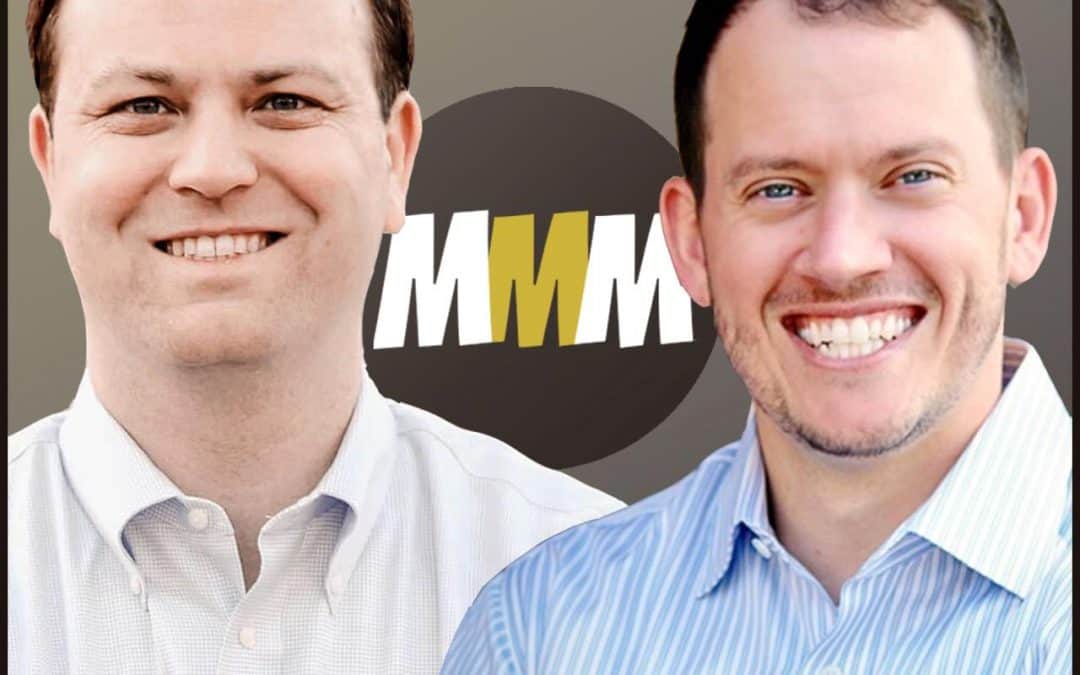Money Meets Medicine Podcast
MMM #20: Pre-Tax or Roth: That’s the Question
It is a debate as old as time! Pre-tax (standard) or Roth? That is the question. And in this episode, it is a question that we give thorough treatment toward as we walk you through the in’s and out’s & ups and downs of pre-tax versus Roth investments. You might think that you know all that there is to know about this question, but I bet you will walk away learning something new by the end of this episode of Money Meets Medicine.
In this episode of Money Meets Medicine, “ Pre-Tax or Roth: That’s the Question?” you’re going to learn:
- How the difference can save you thousands!
- The advantages and disadvantages of each.
- The true meaning of the word “Roth”
- Why a hybrid of the two may be the best.
- Why you need to anticipate the future!
- And more!
Quotes to Remember:
“You want to pay the tax when the marginal tax rate when it’s at its absolute lowest.”
“I don’t want to pay Uncle Sam anymore than I have to!”
“Realistically, it’s gonna be some sort of hybrid model that is going to occur… having a mixture of these two things is almost always good.”
Resources from the Episode:
Historical Marginal Tax Rate for Highest and Lowest Income Earners
6.5 Ways to Overcome The Early Retirement Gap to Age 59.5 – Roth Ladder Conversion
This Episode’s Sponsor
This episode is brought to you by Doug Crouse at doctorloanexpert.com
Doug personally helped Ryan and Taylor get their loan and they were blown away by how amazing he was to work with. He had the best rates and the service puts him at the top of class.
He would be happy to answer any questions you have about your home loan.
Reach out to Doug at doctorloanexpert.com Or by phone, at 1-816-728-3631.
Listener Question of the Week:
Today’s listener question comes from Marc Booth,
“Have you explained the process of doing a Roth conversion ladder?”
Each episode, we are going to start including listener questions as they are provided to us. So, if you have a specific question you’d like answered on the podcast reach out to us! Email [email protected] or [email protected]
TPP
3 Comments
Submit a Comment
You might also be interested in…
Following the Financial Crowd
Have you ever left a sporting event, following the crowd, and suddenly realized you were walking the wrong way? What if I told you this phenomenon has a name, and it impacts your money, too?
Understanding our own behavior when it comes to finance is essential because it helps us mitigate wrong-for-us decision making around money. Unless you know these roadblocks exist, you can’t do much to stop them from derailing your financial goals.
Last week, we shared why human behavior matters for our financial lives by taking a look at the first 5 out of 10 psychological phenomena that can (and do) affect your personal finance goals: greed, fear, ego/overconfidence, loss aversion, and analysis paralysis.
This week, we’re diving back into behavioral finance (one of our favorite topics) to share five more types of unchecked human behavior that can sabotage your journey to building the wealth you want.
Greed, FOMO, and Bad Investments
Despite our best intentions, certain emotions can keep us from building wealth. After many years arming physicians with the information they need to achieve financial wellness, I had a significant realization.
Information is one thing – behavior is another.
As the saying goes, money is 80% behavior and only 20% math.
Not only do I want to share important information about personal finance, I also want to help you recognize how certain behaviors can (and do) affect your finances.
Drawing from one of the classic books about investing, let’s go over five common behaviors that could be keeping you from achieving your financial goals.
How Doctors Can Get Good Financial Advice
Many doctors and high-income professionals hire financial advisors for any number of reasons. Either they’re too busy to handle their finances themselves, they don’t really know how to invest, or they want an expert on their side to make sure they’re on the right track.
So allow me to say from the start: I’m not against financial advisors, but I am against doctors (or anyone, really) being overcharged for bad advice.
There’s no shame in asking for help – you just want to get the help you need at a fair price.
You should be equipped enough to vet and evaluate your financial advisor so you’ll know whether they’re working well on your behalf. How can you be as confident as possible they’re acting in your best interest? This episode will help you find out.
Are you ready to live a life you love?
© 2021 The Physician Philosopher | Website by The Good Alliance





Can someone max out their employer 401k, their self employed solo 401k, and still do ROTH conversions?
Asked another way…are ROTH conversions limited or affected at all from the retirement contributions of the individual during that year?
Yes to the first. No to the second.
6k Max contribution to traditional IRA for 2020. There is no Max on conversions to Roth.
Both are unrelated to your retirement contributions elsewhere.
My wife and I fill up my 403B and non-gvt 457 and my wife’s gvt 457 and 401k. We also do 6k backdoor Roth IRAs each year, too.
Excellent. Thank you!